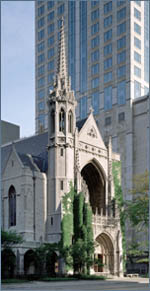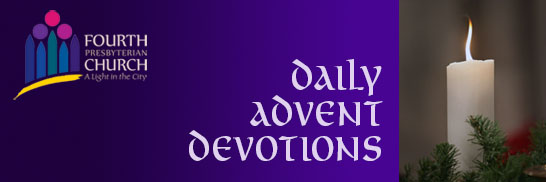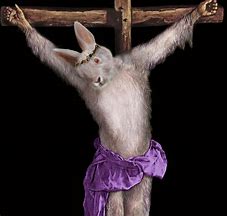The first change I faced for the Covid 19 shutdown was the suspension of classes and groups for older adults at the Center for Life and Learning (CLL) in my neighborhood church. The cancellation announcement infuriated me. For an entire day, I thought it was the only shutdown announcement, the only group activity suspended.
The media had been continually reporting that people over sixty were more vulnerable to coronovirus than the rest of the population. Shutting us down was our best protection. My wounded ego jumped to the conclusion that we, as a group, would be thought of as weak, defeated and sick, putting a frame around the ageism I struggle to define in myself

and in the public square. I stuck myself in a cloud of unknowing.
It was mid-March. I bundled up to walk a long way around to the church for the last event before the shutdown, the CLL yearly Art Show.
How to express my agitation? Old people were being singled out. Excluded.
That’s when I ran into one of the pastors on his way down the street to the Red Line.
“We’re cancelling services.” He said.
“Huh? How long?”
“Unknown. It’s all going to be livestream. We have to figure out Zoom for other gatherings.”
His worried expression hit me like a ton of bricks. He didn’t crack his normal smile, nor did he put a jokey spin on the situation.
“It’s serious.” He said.
“So, It’s not just old people?”
At the Art Show I gathered with friends and reported the news .
No Sunday services.
I eavesdropped on other conversations. Eavesdropping has become one of the social distancing casualties I miss the most.
“They say we might have classes on Zoom.”
“What’s Zoom?”
“Some kind of computer conferenceing.”
“I’m not doing that. I’m sick of technology.”
“Me too. I don’t want to learn anything new.”
“Well, it won’t be for long. Maybe a week. Maybe two.”
We’re in the seventh week now.
I fell victim to the fear of the unknown and refused to learn Zoom for about six days. But I longed for the energy of the collective silence in my meditation group. Others did too and meditation became the first Zoom hosted by CLL.
About fifteen of us spend twenty minutes each Monday and Friday sitting in silence in our Hollywood Squares with our eyes closed. Afterwards we each say a few brief words. We know a smattering of particulars about each other.
What could I possibly miss that I can’t do on my own?
In The Cloud of Unknowing, a fourteenth century monk teaches when we know enough and we don’t need to know more, an opening through the clouds to the sun or the moon brings us to an endless, wordless, deeper knowing. Contemplatives call this love.
This is why I yearn to sit in silence with fellow meditators. We know each other through the clouds of our own wordless unknowing. I call this love.


 We’d walked less than a half a block before I breathlessly yanked my homemade mask off. The lightweight cotton had turned into a heat chamber about to asphyxiate me. I wasn’t the only one. Everyone’s mask was askew or nonexistent in the warmer weather. And that was the end of widespread mask use in the neighborhood.
We’d walked less than a half a block before I breathlessly yanked my homemade mask off. The lightweight cotton had turned into a heat chamber about to asphyxiate me. I wasn’t the only one. Everyone’s mask was askew or nonexistent in the warmer weather. And that was the end of widespread mask use in the neighborhood.
 at Chicago’s Gold Coast Gothic Revival landmark, I arrived late and left early. I sat in the last pew, never opened the pew Bible, the songbook or recited the prayers. I didn’t belong there. I didn’t have the right clothes, right politics or right job. Indeed, I had no right to sit in well-ordered Presbyterianism.
at Chicago’s Gold Coast Gothic Revival landmark, I arrived late and left early. I sat in the last pew, never opened the pew Bible, the songbook or recited the prayers. I didn’t belong there. I didn’t have the right clothes, right politics or right job. Indeed, I had no right to sit in well-ordered Presbyterianism.

 evening garbage, that doubting God strengthens faith. And it did. Until I started doing my own version of God. I built a periodic table of spiritual elements with blocks of God-info such as heaven and hell don’t exist and Jesus’ Resurrection is simply a symbol of renewed life. Trouble is, I silently scorned those who didn’t believe as I did. When I first met my co-workers I held a colonizing view of their beliefs. Over time my religious formulas fell in the trash heap. As slave descendants, they daily transformed their passed-down spiritual trauma into “I believe.”
evening garbage, that doubting God strengthens faith. And it did. Until I started doing my own version of God. I built a periodic table of spiritual elements with blocks of God-info such as heaven and hell don’t exist and Jesus’ Resurrection is simply a symbol of renewed life. Trouble is, I silently scorned those who didn’t believe as I did. When I first met my co-workers I held a colonizing view of their beliefs. Over time my religious formulas fell in the trash heap. As slave descendants, they daily transformed their passed-down spiritual trauma into “I believe.”